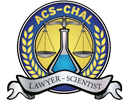 Our society is experiencing a rising prevalence of driving under the influence of illegal and medicinal drugs. It has been written that one in three motor vehicle fatalities with known drug test results tested positive for drugs in 2009. Data from road traffic arrests and fatalities indicate that, after alcohol, marijuana is the most frequently detected psychoactive substance among driving populations. Marijuana has been shown to impair performance on driving simulator tasks and on open and closed driving courses for up to approximately 3 hours. Michigan law prohibits any person to drive a motor vehicle after consuming or ingesting alcohol, drugs, or a combination of both which impairs that person’s ability to drive. A measure of intoxication from the consumption of alcohol is commonly performed with a breath test or blood test. The results are expressed in grams as a percentage of the breath or blood. The legal limit in Michigan is .08 grams or more per 100 milliliters of blood or per 210 liters of breath. But what about driving of a vehicle by a person who may legally smoke marijuana? Presently Michigan is one of 17 states that have a zero tolerance law that makes it unlawful for a person to operate a motor vehicle with any amount of a controlled substance in their body. Most people believe that THC stays in your body for approximately thirty days but that is not true. As THC is being broken down in a person’s body a natural byproduct is created called a metabolite also known as Carboxy-THC. That metabolite, which is what is tested for in common drug tests, is not THC and therefore does not count for purposes of the driving with the presence of THC. Nor does the metabolite cause any type of impairment. This interpretation of the law occurred in June of 2010. Prior to that date, even the presence of Carboxy-THC in a person’s body while driving was illegal. Actual THC will remain in a person’s blood between three and six hours depending upon how much was ingested, the manner of intake, body fat percentage and frequency of past use. Therefore it is illegal to drive a vehicle in Michigan within at least three hours after smoking marijuana.
Our society is experiencing a rising prevalence of driving under the influence of illegal and medicinal drugs. It has been written that one in three motor vehicle fatalities with known drug test results tested positive for drugs in 2009. Data from road traffic arrests and fatalities indicate that, after alcohol, marijuana is the most frequently detected psychoactive substance among driving populations. Marijuana has been shown to impair performance on driving simulator tasks and on open and closed driving courses for up to approximately 3 hours. Michigan law prohibits any person to drive a motor vehicle after consuming or ingesting alcohol, drugs, or a combination of both which impairs that person’s ability to drive. A measure of intoxication from the consumption of alcohol is commonly performed with a breath test or blood test. The results are expressed in grams as a percentage of the breath or blood. The legal limit in Michigan is .08 grams or more per 100 milliliters of blood or per 210 liters of breath. But what about driving of a vehicle by a person who may legally smoke marijuana? Presently Michigan is one of 17 states that have a zero tolerance law that makes it unlawful for a person to operate a motor vehicle with any amount of a controlled substance in their body. Most people believe that THC stays in your body for approximately thirty days but that is not true. As THC is being broken down in a person’s body a natural byproduct is created called a metabolite also known as Carboxy-THC. That metabolite, which is what is tested for in common drug tests, is not THC and therefore does not count for purposes of the driving with the presence of THC. Nor does the metabolite cause any type of impairment. This interpretation of the law occurred in June of 2010. Prior to that date, even the presence of Carboxy-THC in a person’s body while driving was illegal. Actual THC will remain in a person’s blood between three and six hours depending upon how much was ingested, the manner of intake, body fat percentage and frequency of past use. Therefore it is illegal to drive a vehicle in Michigan within at least three hours after smoking marijuana.
There are some arguments against Michigan’s Zero Tolerance law. First, just because a person has a small amount of THC in their body does not mean their driving would be adversely affected. This is a public policy argument. Also, the 14th Amendment of the United States Constitution guarantees that all persons in the country shall enjoy equal protection of the laws. There is a rational argument that MMMA patients are not being treated equally and fairly in violation of the 14thAmendment because they are more likely to have THC in the body and therefore treated differently than persons who are not MMMA card holders. This argumenthas been accepted by at least one judge in Michigan and will soon be reviewed by higher Michigan courts. That is another example of how our new medical marijuana law in its infancy is evolving in its interpretation and enforcement.


